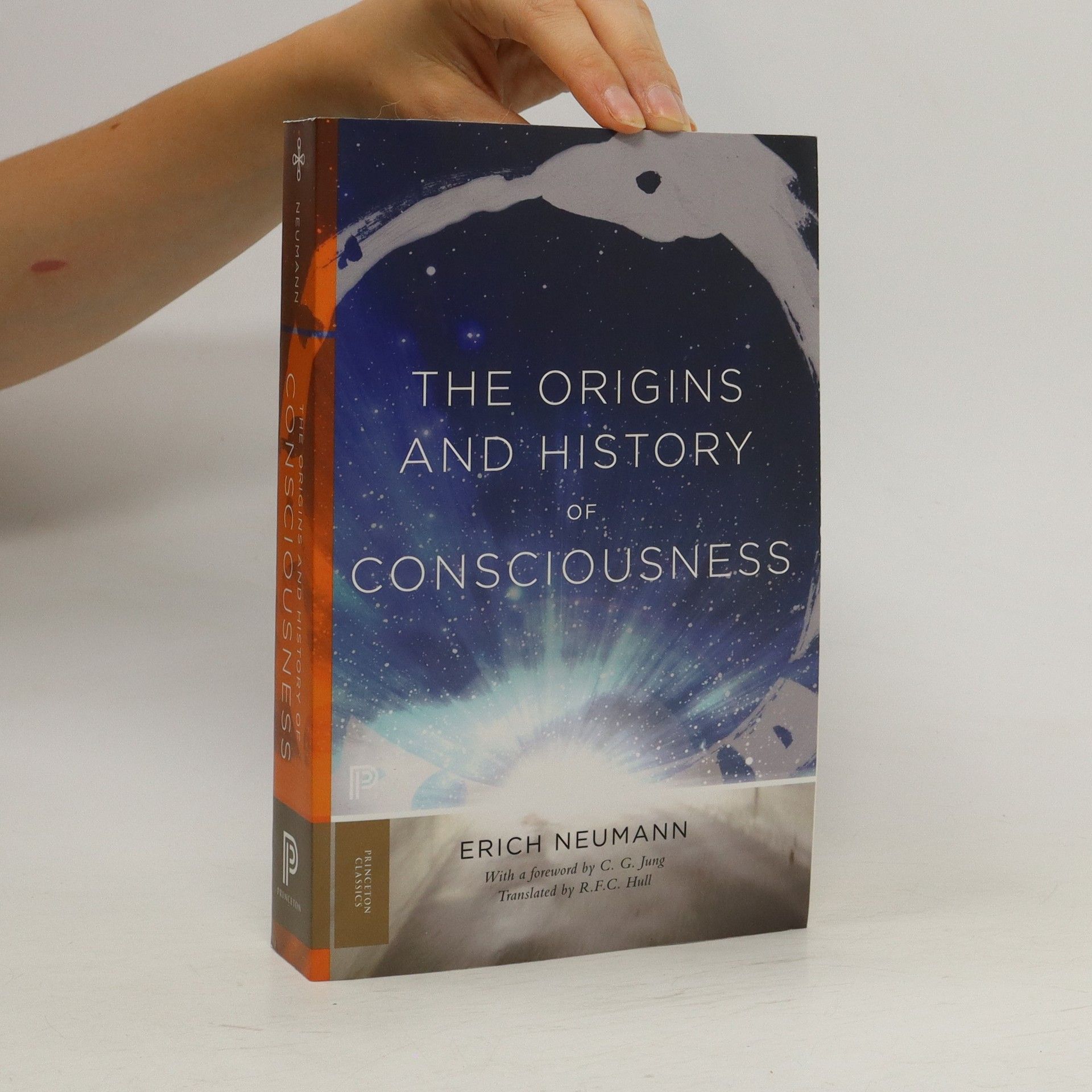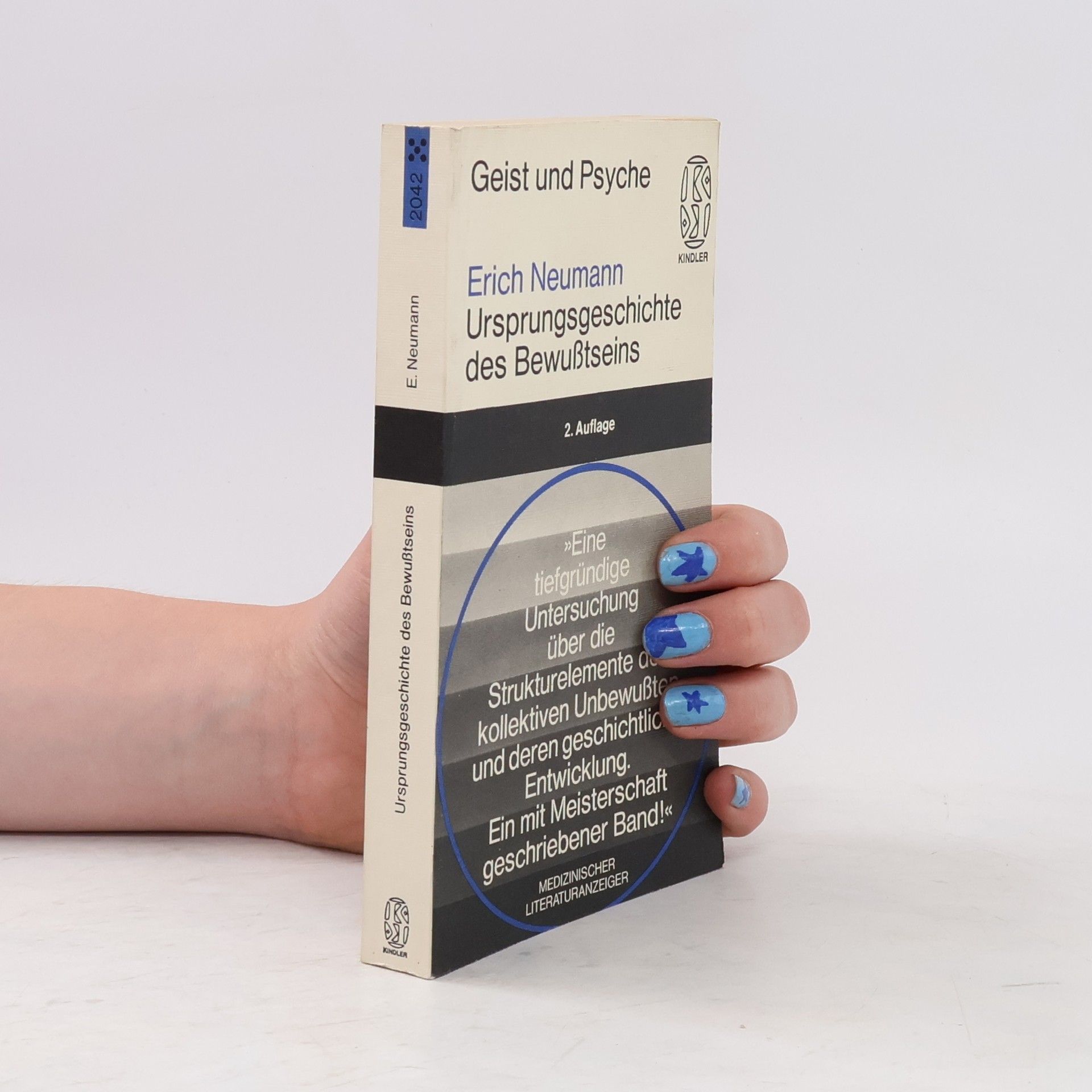Il famoso commento psicologico del grande analista junghiano alla celeberrima favola di Apuleio, Amore e Psiche. Con pochi tratti Neumann illumina di luce folgorante insospettati recessi della psiche umana. È un classico che non può mancare al patrimonio di qualsiasi uomo colto. La famosa favola di Apuleio è l'oggetto e il modello del saggio di Neumann sulla psicologia del femminile. [...] Con Psiche nasce un nuovo principio d'amore in cui l'incontro tra il maschile e il femminile diventa il fondamento dell'individuazione. Con l'azione di Psiche fanno la comparsa nel mondo dolore, colpa e solitudine, le sofferenze legate all'individuazione.
Erich Neumann Libri
Erich Neumann fu uno psicologo e scrittore influente che esplorò profondamente la psicologia della coscienza, della creatività e dello sviluppo femminile. Il suo lavoro fu caratterizzato da un approccio teorico e filosofico all'analisi, che lo distingueva dalle preoccupazioni più cliniche altrove. Neumann indagò come la mitologia nel corso della storia rifletta lo sviluppo della coscienza, parallelizzando la crescita sia individuale che sociale. Il suo contributo più significativo risiede nel concetto empirico di "centroversione", una sintesi di introversione ed estroversione.







The modern world has witnessed a dramatic breakthrough of the dark, negative forces of human nature. The "old ethic," which pursued an illusory perfection by repressing the dark side, has lost its power to deal with contemporary problems. Erich Neumann was convinced that the deadliest peril now confronting humanity lay in the "scapegoat" psychology associated with the old ethic. We are in the grip of this psychology when we project our own dark shadow onto an individual or group identified as our "enemy," failing to see it in ourselves. The only effective alternative to this dangerous shadow projection is shadow recognition, acknowledgement, and integration into the totality of the self. Wholeness, not perfection, is the goal of the new ethic.
Contains essays that reveal a concern about the one-sidedness of patriarchal Western civilization. They discuss the psychological stages of woman's development, the moon and matriarchal consciousness, Mozart's Magic Flute, the meaning of the earth archetype for modern times, and the fear of the feminine.
The origins and history of consciousness
- 493pagine
- 18 ore di lettura
The Origins and History of Consciousness draws on a full range of world mythology to show how individual consciousness undergoes the same archetypal stages of development as human consciousness as a whole. Erich Neumann was one of C. G. Jung's most creative students and a renowned practitioner of analytical psychology in his own right. In this influential book, Neumann shows how the stages begin and end with the symbol of the Uroboros, the tail-eating serpent. The intermediate stages are projected in the universal myths of the World Creation, Great Mother, Separation of the World Parents, Birth of the Hero, Slaying of the Dragon, Rescue of the Captive, and Transformation and Deification of the Hero. Throughout the sequence, the Hero is the evolving ego consciousness. Featuring a foreword by Jung, this Princeton Classics edition introduces a new generation of readers to this eloquent and enduring work.
The great mother
- 380pagine
- 14 ore di lettura
This landmark book explores the Great Mother as a primordial image of the human psyche. Here the renowned analytical psychologist Erich Neumann draws on ritual, mythology, art, and records of dreams and fantasies to examine how this archetype has been outwardly expressed in many cultures and periods since prehistory. He shows how the feminine has been represented as goddess, monster, gate, pillar, tree, moon, sun, vessel, and every animal from snakes to birds. Neumann discerns a universal experience of the maternal as both nurturing and fearsome, an experience rooted in the dialectical relation of growing consciousness, symbolized by the child, to the unconscious and the unknown, symbolized by the Great Mother. Featuring a new foreword by Martin Liebscher, this Princeton Classics edition of The Great Mother introduces a new generation of readers to this profound and enduring work.
Amor and Psyche
- 192pagine
- 7 ore di lettura
Unfolding the spiritual and mythical background of the pagan narrative, this book shows how the contest between the mortal maid Psyche and the great goddess Aphrodite over the god Amor yields insights into the psychic life of women.
Geist und Psyche: Ursprungsgeschichte des Bewußtseins - 2. Auflage
- 370pagine
- 13 ore di lettura
Exploring the intersection of analytical psychology with literature and art, this collection of essays by a prominent student of C. G. Jung delves into profound connections that reveal the psychological underpinnings of creative expression. The work highlights how Jungian concepts can enhance our understanding of artistic endeavors, offering fresh insights into both psychological theory and the artistic process.
Focusing on creativity, Erich Neumann's third volume of essays draws from a diverse range of figures, including artists and scientists, to explore the nature of human creativity. Neumann expands Jungian psychology by introducing the concept of "unitary reality" and redefining archetypes. He argues that humanity's ability to recognize its creative potential is crucial for overcoming its self-destructive tendencies. The six essays, originally lectures from the Eranos Conferences, delve into the psyche's role in creation and the significance of meaning and peace in life.
Velká matka : fenomenologie ženských podob nevědomí
- 620pagine
- 22 ore di lettura
Tato přelomová a dnes již klasická kniha zkoumá Velkou matku jako prvotní obraz lidské psychiky. Renomovaný analytický psycholog Erich Neumann zde čerpá z rituálů, mytologie, umění a záznamů snů a fantazií, aby prozkoumal, jak byl tento archetyp navenek vyjádřen v mnoha kulturách a obdobích od pravěku. Ukazuje, jak byla žena reprezentována jako bohyně, monstrum, brána, strom, měsíc, slunce, loď a každé zvíře od hadů po ptáky. Neumann vnímá univerzální zkušenost matky jako vyživující i děsivou; zakořeněnou v dialektickém vztahu rostoucího vědomí, symbolizovaného dítětem, k nevědomí a neznámu, symbolizovaného Velkou matkou.

